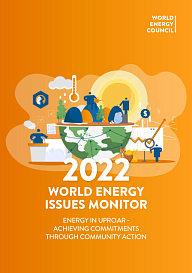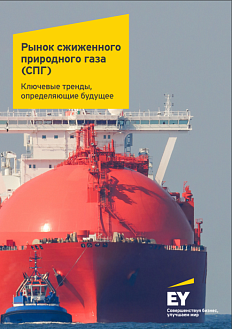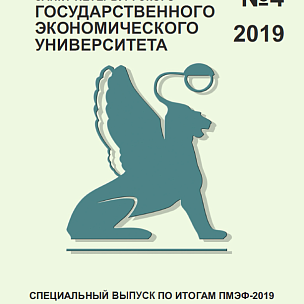2022 World Energy Issues Monitor Reveals Leaders’ Increasing Uncertainty Over Global Energy Agenda
- Commodity price volatility top concern, with uncertainty 12x greater than in 2021
- Geopolitical uncertainty driven by energy interdependence and security concerns
- Lack of clarity and urgency over achieving commitments on climate, affordability and justice, despite momentum from COP 26
- North America the exception where climate change management tops list of uncertainties
- Quality energy access identified as a global action priority in all regions for the first time
The World Energy Council has published its annual World Energy Issues Monitor. Titled «Uproar in Energy — achieving commitments through community action», the publication provides a forward-looking assessment of the global energy agenda based on the views of more than 2,200 energy leaders from 108 countries. Leaders were surveyed immediately following the COP 26 conference in Glasgow, providing a unique insight into leaders’ perceptions against the backdrop of this international event.
Now in its 13th year, the 2022 edition shows a sharp upward trend in perceptions of uncertainty across almost all the issues leaders were asked to assess. Volatile commodity prices, fragmented economic growth and fragile geopolitics stemming from both increased energy interdependence and concerns around security of supply, converged to shape a uniquely uncertain path to achieving the global energy agenda.
Geopolitical uncertainty was most prominent across Europe, where the topic was attributed a 70% increase in impact compared to 2021 — largely driven by escalating trade tensions and continued pressure on leaders in the region to cope with pandemic shocks.
Despite a degree of optimism coming out of COP 26, climate change was not at the top of leaders’ list of critical uncertainties, with more pressing concerns around rising energy costs driving priorities. Bucking this trend, North America emerged as the only region where climate change management was attributed the highest degree of impact. Perhaps as a result of significant domestic resources, commodity prices in the US, Canada and Mexico were less of a priority than in the rest of the world.
Dr Angela Wilkinson, Secretary General of the World Energy Council, commented: «Energy matters are now centre stage in a world of more digitally connected, politically contested, interdependent and diverse societies. This year’s edition of our World Energy Issues Monitor reflects increasing global uncertainty about the collective ability to manage a steady global energy transition, as rising energy costs and shifting geopolitics hinder leaders’ ability to find and scale solutions which meet demand for more sustainable energy and address climate change. Leadership uncertainty reflects the complex challenges of coordinating actions on net zero energy uses, without triggering new threats to regional and global stability.»
Elsewhere, regional perspectives reveal a focus on renewable energies as a defined action priority, notably in the Middle East and Gulf States where renewables form a key pillar of governments’ energy transition strategies. Hydrogen continues to be viewed with a high degree of uncertainty across most regions as leaders explore how to build a functioning hydrogen economy.
Despite mounting uncertainty, the report also reveals a distinct focus on issues affecting equity, with quality energy access becoming an action priority for the first time, across all regions. This suggests that global leaders recognise the need to humanise the energy transition by building equity and resilience and ensuring reliable, affordable and safe energy supply for all.
Dr Wilkinson added: «Commodity prices are inherently linked to system costs, affordability, taxation and, crucially, equity. Humanising energy is a imperative — we must involve more people and voices, community solutions and ways of holding leaders to account. Better solutions for people and planet will require new models of human and economic development and a shift from incremental improvements to transformational strategies that work across borders, across sectors, involve all levels of society, and deal with more than one issue at a time».
This year’s 25th World Energy Congress: Energy for Humanity will provide an opportunity to address leaders’ uncertainties and develop clear pathways for action. The event takes place in St Petersburg on 24-27 October and will convene more than 7,000 international energy leaders and stakeholders.
We also suggest that you read other materials posted in the special sections of the Roscongress Foundation Information and Analytical System: Power generation, Renewable Energy sources, Climate Change and Sustainable Development about energy sources and sustainable development.






